Your support helps us to tell the story
From reproductive rights to climate change to Big Tech, The Independent is on the ground when the story is developing. Whether it's investigating the financials of Elon Musk's pro-Trump PAC or producing our latest documentary, 'The A Word', which shines a light on the American women fighting for reproductive rights, we know how important it is to parse out the facts from the messaging.
At such a critical moment in US history, we need reporters on the ground. Your donation allows us to keep sending journalists to speak to both sides of the story.
The Independent is trusted by Americans across the entire political spectrum. And unlike many other quality news outlets, we choose not to lock Americans out of our reporting and analysis with paywalls. We believe quality journalism should be available to everyone, paid for by those who can afford it.
Your support makes all the difference.The city of Beirut and its residents are still reeling from a massive explosion on Tuesday, which demolished buildings and killed at least 70 people.
Officials believes over 3,000 people have also been injured in the blast, which was felt by residents living miles away from the explosion site, located at Beirut’s port.
The explosion sent a giant mushroom cloud into the sky and the death toll is expected to climb as rescuers dig through the rubble left behind. Army helicopters were see helping battle fires still raging at the port, while ambulances carried away those who were wounded in the hours after the incident.
Photos taken in the aftermath of the explosion show the true scale of devastation the explosion left behind. Lebanese President Michel Aoun said 2,750 tonnes of ammonium nitrate had been stored in a warehouse at the port for six years without safety measures and condemned it as “unacceptable” on Twitter.
He called for a state of emergency to be declared in the Lebanese capital for two weeks.
The Lebanese army joined forces with the Lebanese Red Cross and other rescue groups to try and help any survivors who may be trapped under debris. Dazed people with bloodied faces who were struck by flying debris when the explosion hit were seen in the flattened streets around the site.
The Red Cross said on its Twitter account its teams “cannot reach all the wounded in their homes at the moment”, but they have set up first aid and triage stations to help those with non-critical injuries.
Civilians were also seen helping, carrying survivors away from the ruined buildings and towards safety.
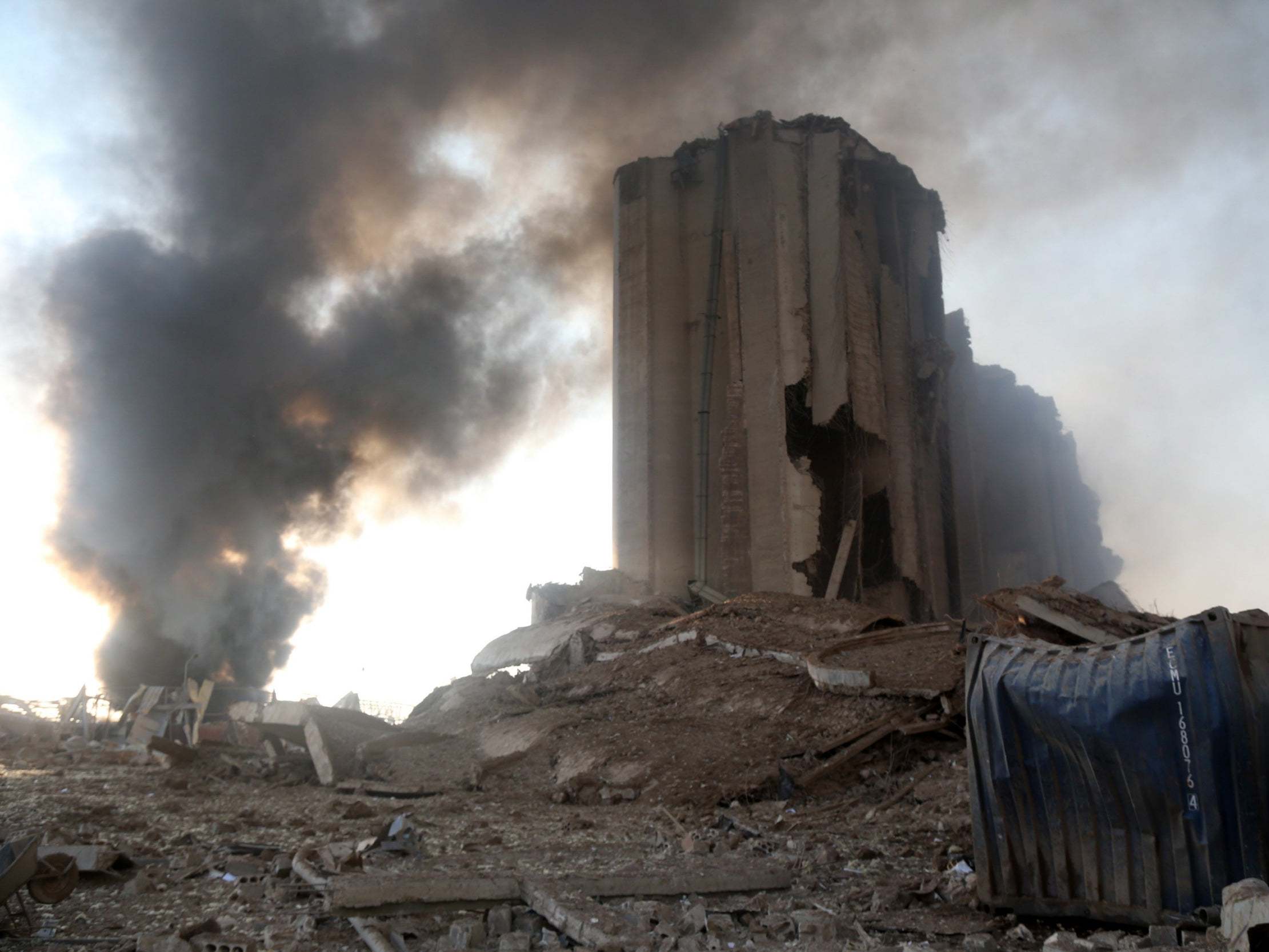
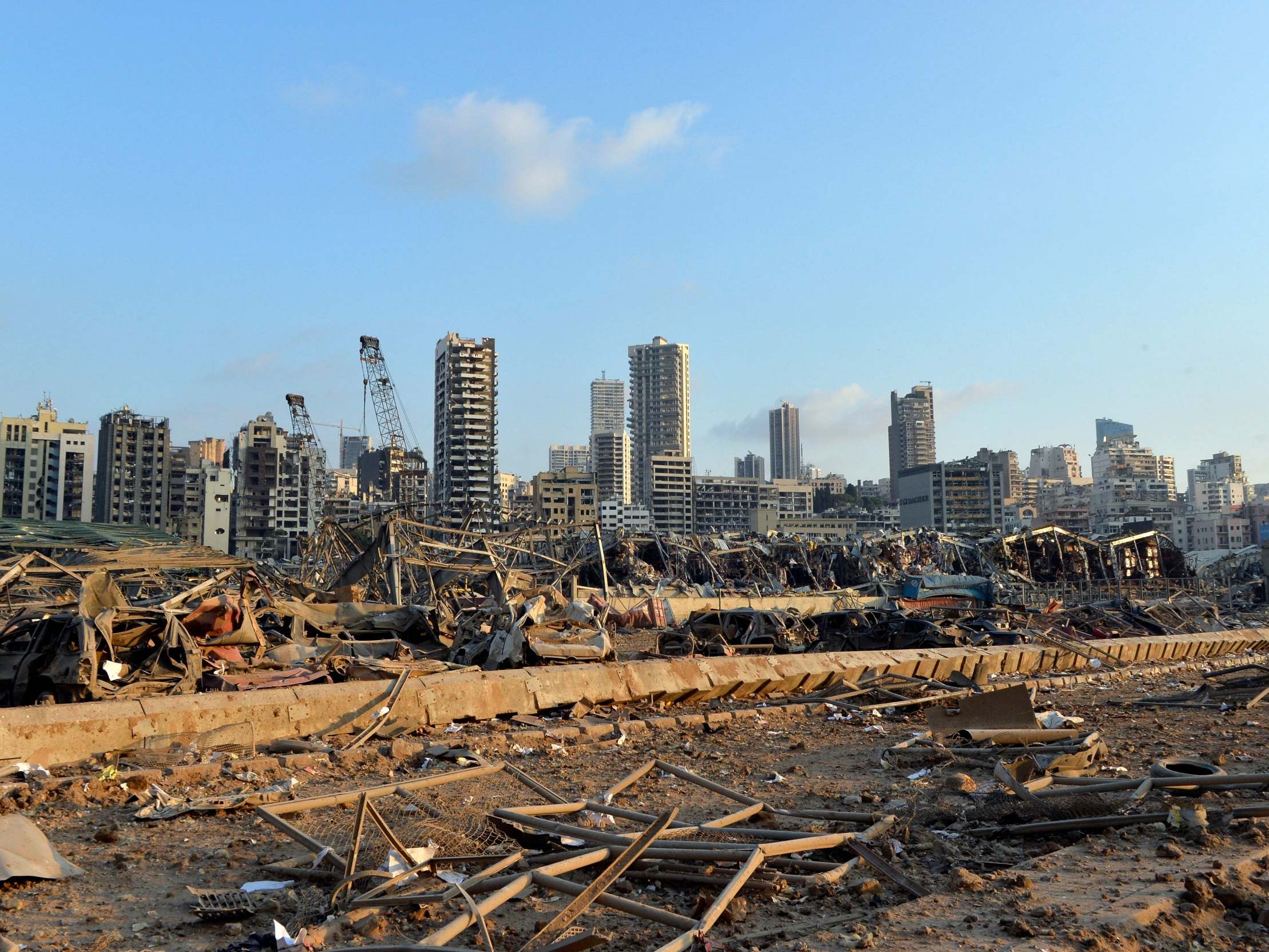
Residents living more than a kilometre away from the site told PA news agency of its impact on their homes, shattering all windows and causing apartment balconies and ceilings to collapse.
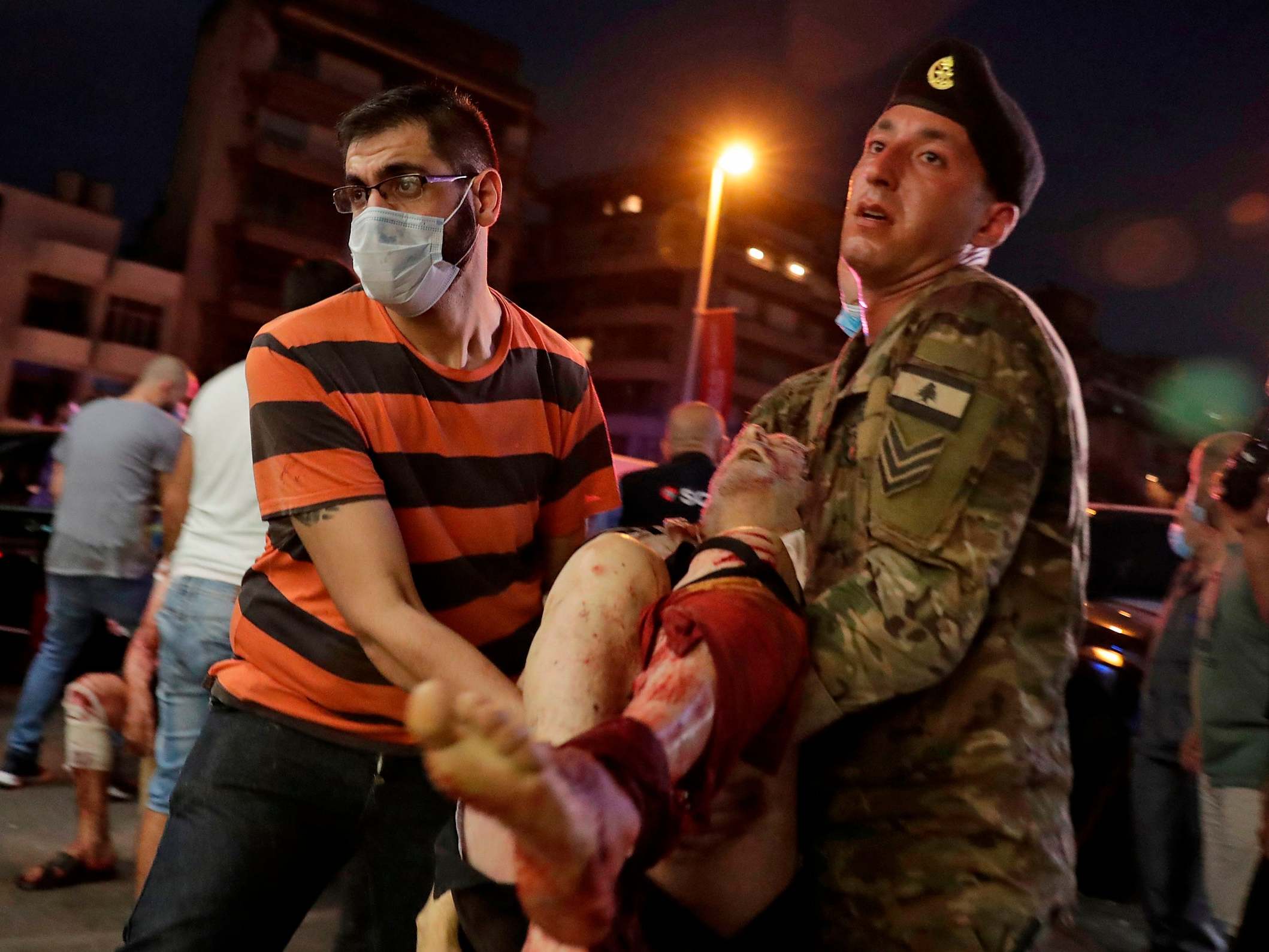
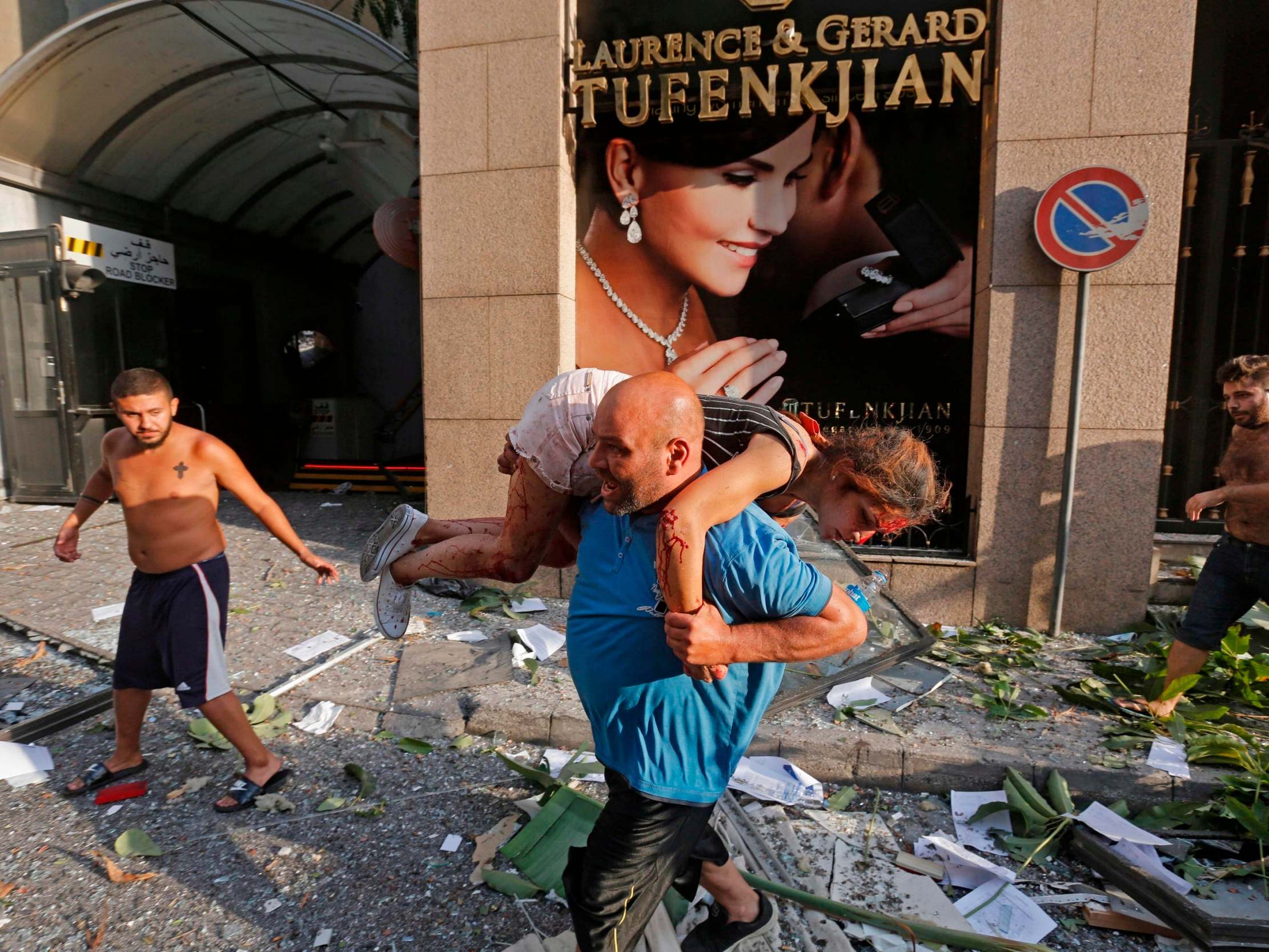
Paola Rebeiz, who lives in St Nicolas, south of the site, said there were “dead bodies on the street after glass fell on them”.
“The house shook. I don’t have electricity, I don’t have water. It’s been non-stop sirens since the explosion.”
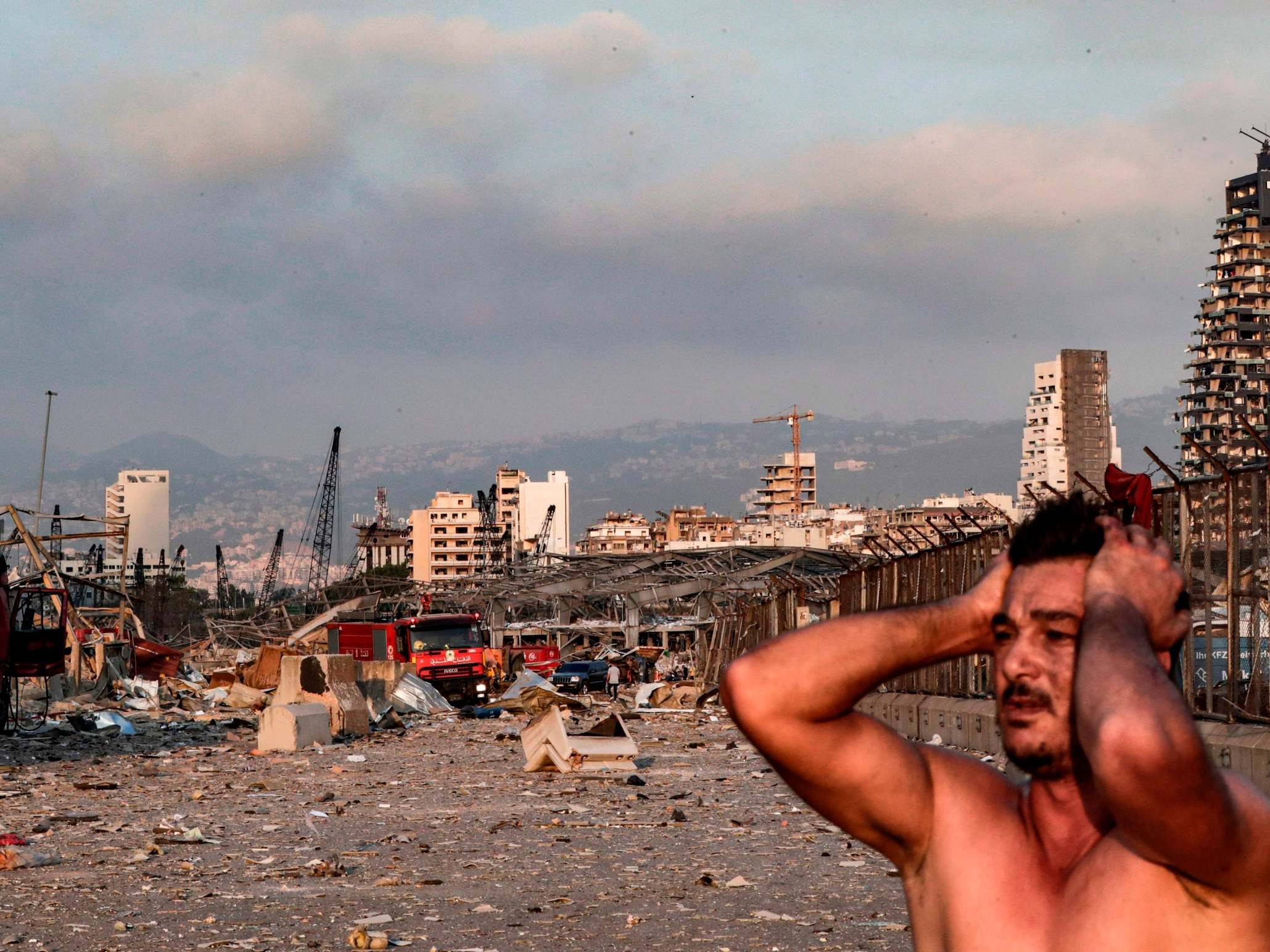
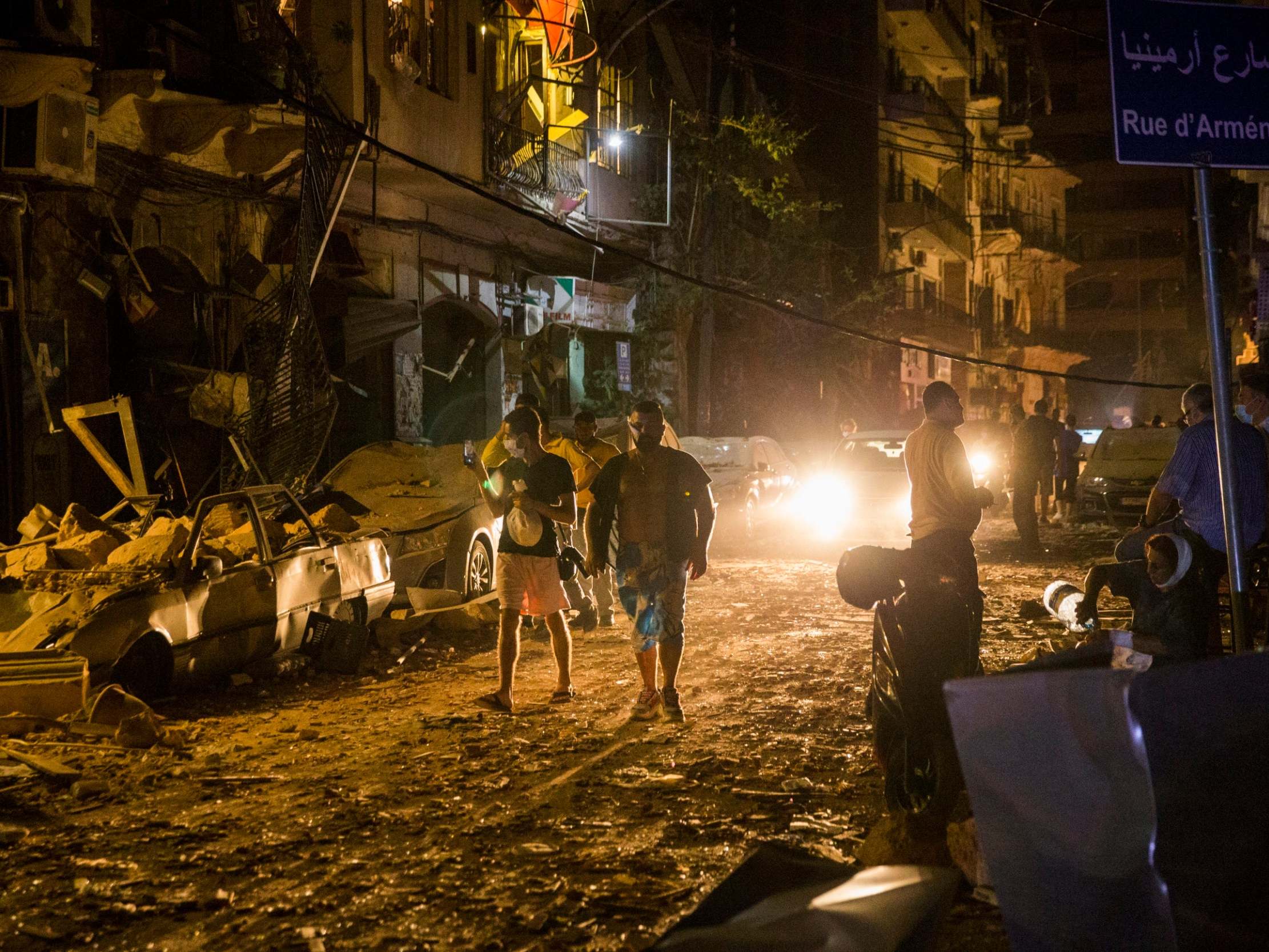
Hospitals in the city are packed with those wounded from the blast, with many seen sitting outside waiting to receive treatment. Some were reportedly taken to medical facilities outside the city as Beirut’s hospitals become crowded.
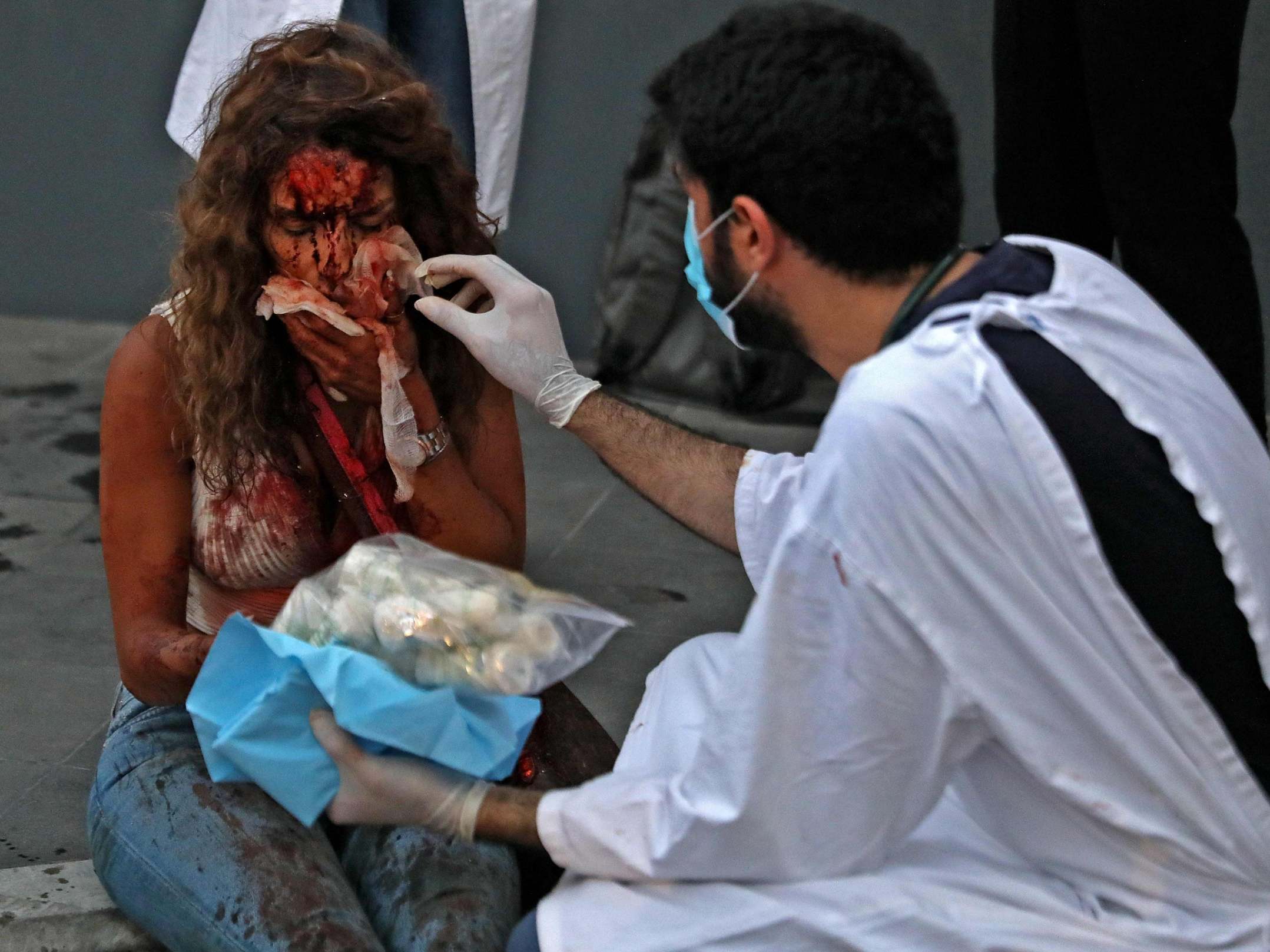
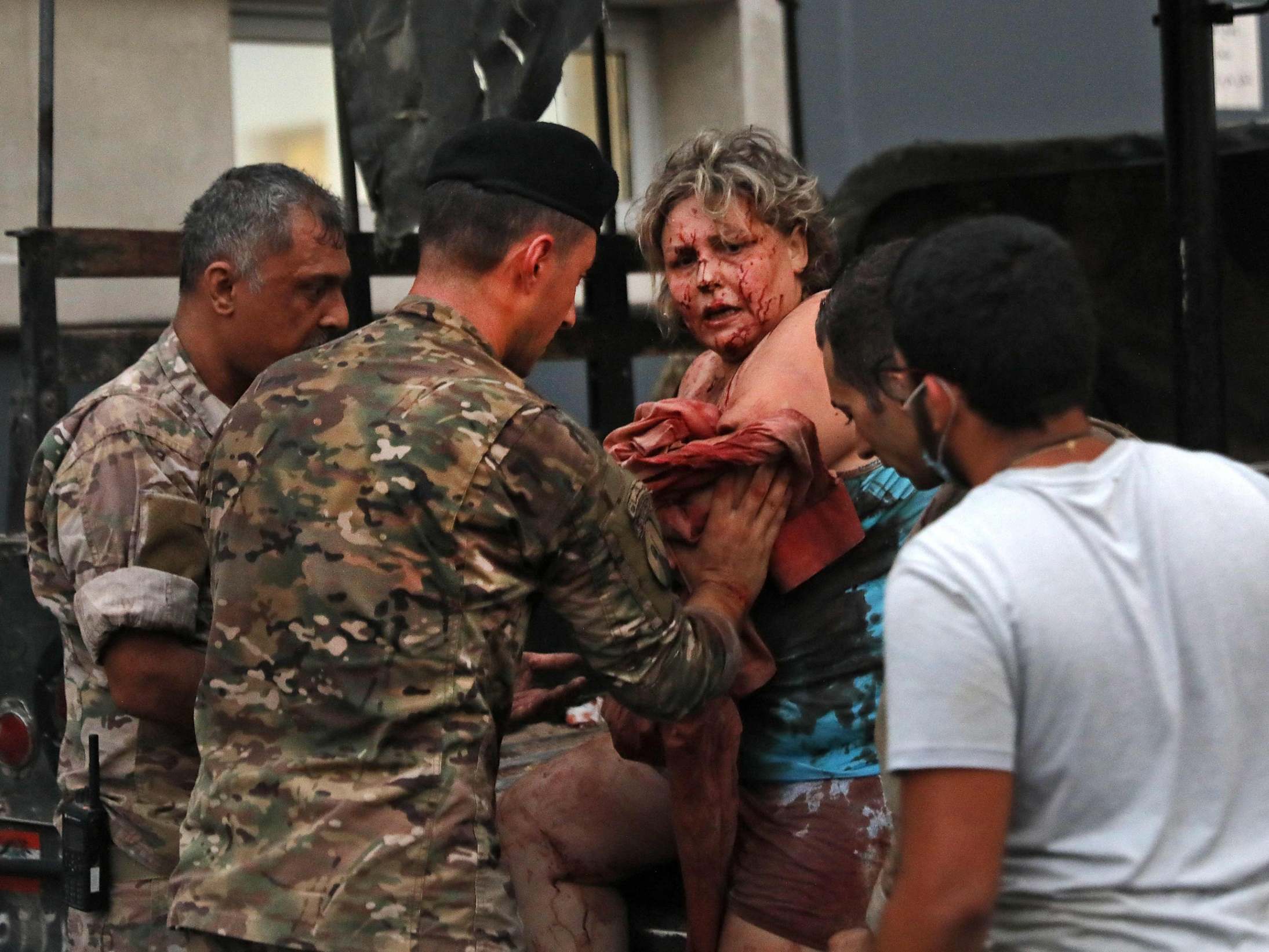
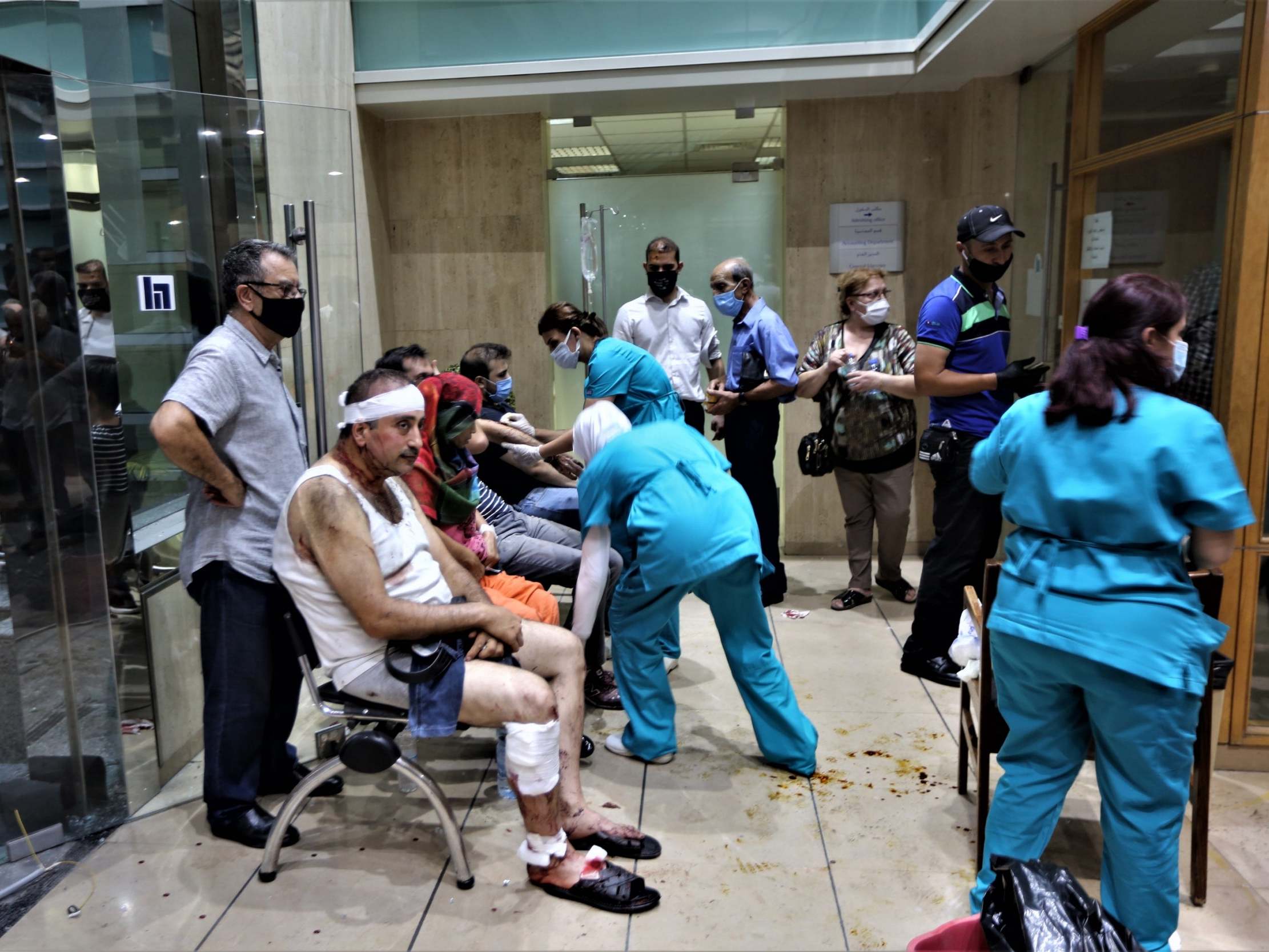
Prime Minister Hassan Diab told the nation in a televised address the catastrophe “will not pass without accountability”.
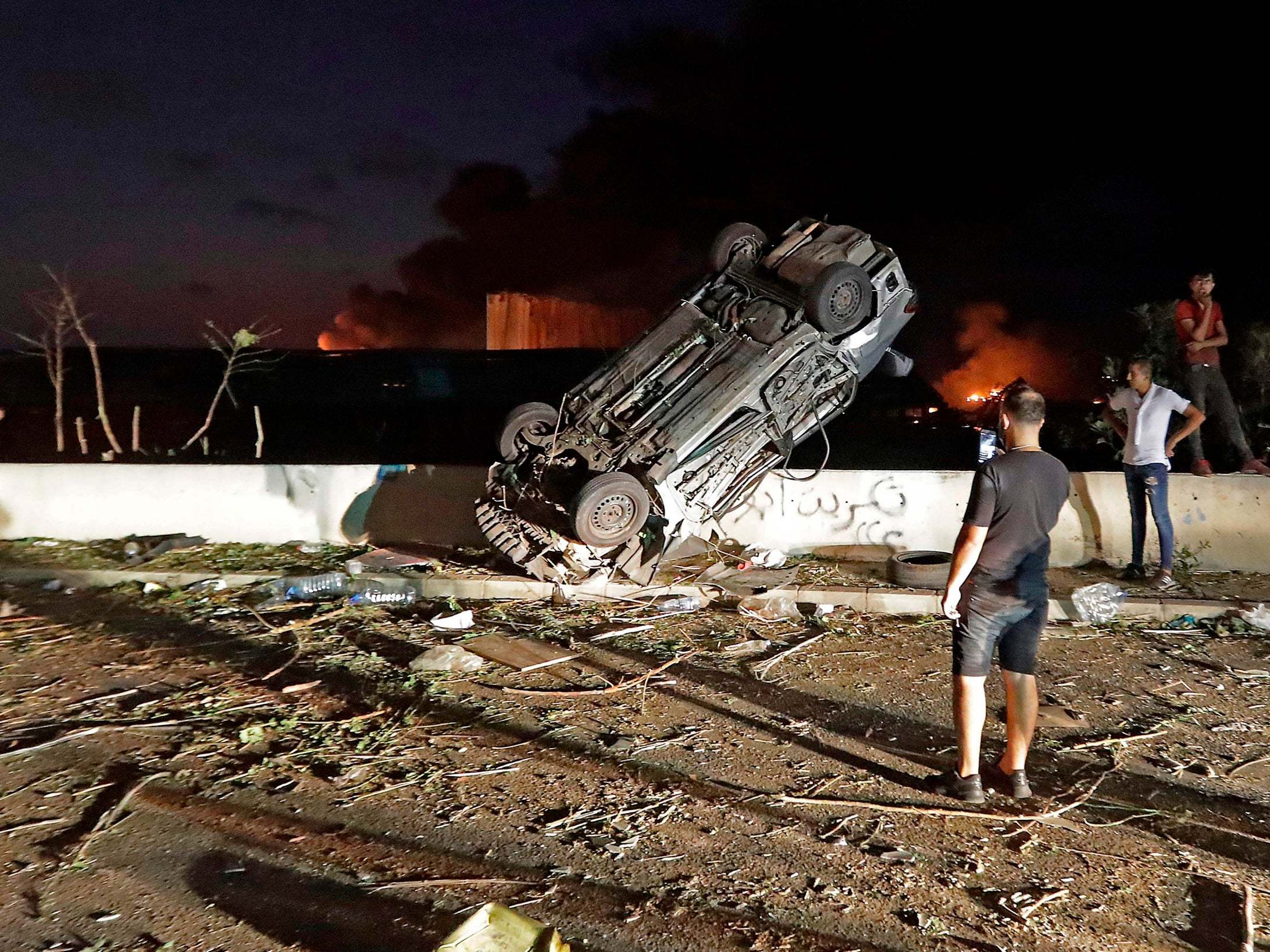

“Those responsible will pay the price,” he said, adding details about the “dangerous warehouse” would be made public.
Subscribe to Independent Premium to bookmark this article
Want to bookmark your favourite articles and stories to read or reference later? Start your Independent Premium subscription today.

Join our commenting forum
Join thought-provoking conversations, follow other Independent readers and see their replies
Comments